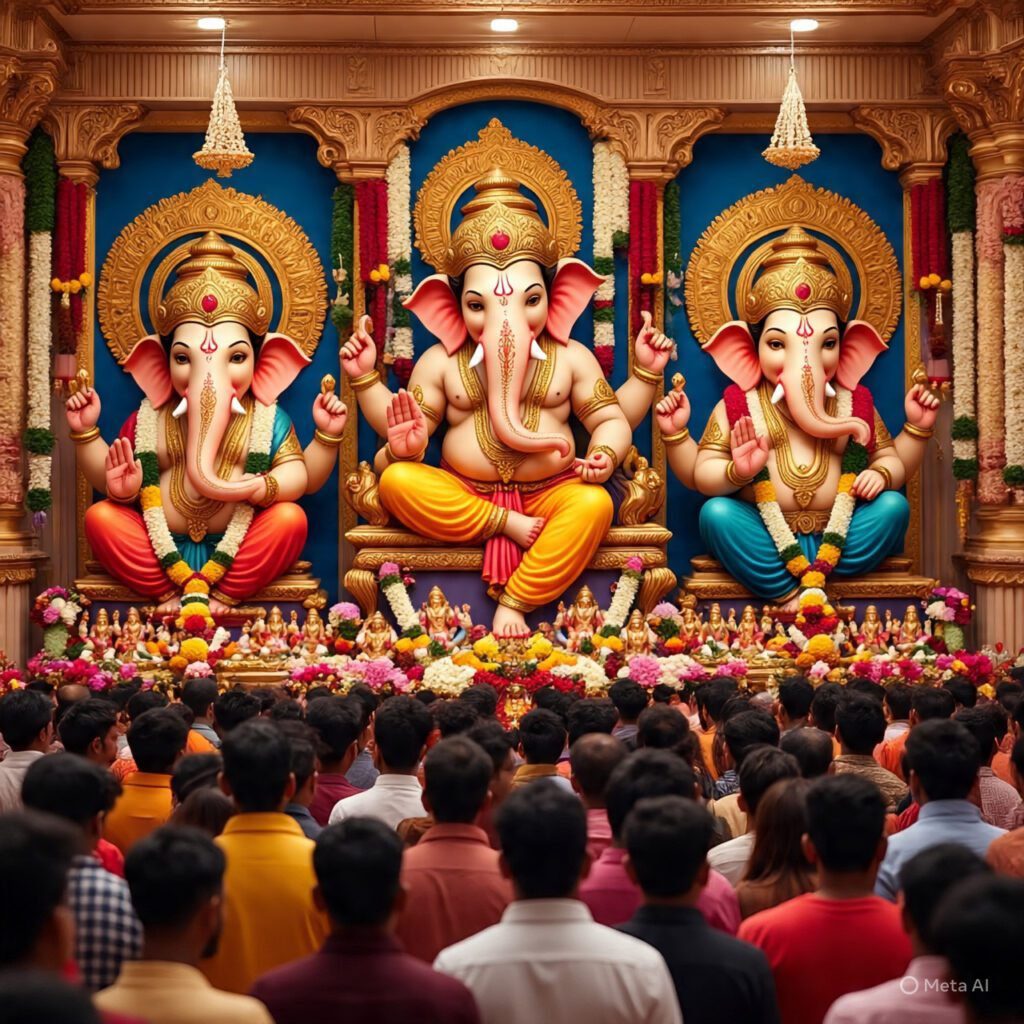Why One Should Never See the Moon on Ganesh Chaturthi
Ganesh Chaturthi is one of the most widely celebrated Hindu festivals, dedicated to Lord Ganesha, the remover of obstacles and the god of wisdom and prosperity. While this day is filled with joy, prayers, and festivities, there is a strong traditional belief that one should avoid seeing the moon on Ganesh Chaturthi night. This belief is rooted in ancient mythology, astrology, and cultural practices, and observing it is said to bring blessings and protect devotees from negative consequences.
The Mythological Reason
According to Hindu mythology, an important story involving Lord Ganesha and the moon explains this prohibition. The moon deity, Chandra, once mocked Ganesha’s large elephant head and body. Hurt by this insult, Lord Ganesha cursed the moon, declaring that anyone who sees the moon on Ganesh Chaturthi night would face false accusations, misunderstandings, and bad luck for a year. Thus, it became customary to avoid looking at the moon as a mark of respect and protection.
Astrological Beliefs
Astrologically, Ganesh Chaturthi falls on the fourth day of the waxing moon phase (Shukla Chaturthi). The moon’s visibility on this day is considered particularly sensitive. Seeing the moon is believed to activate certain unfavorable planetary combinations called “Graha Doshas” that can affect mental peace and prosperity. Avoiding the moon on this day is said to neutralize these adverse influences and bring harmony and fortune to devotees.
Cultural Practices and Precautions
Many devotees follow the tradition of covering their eyes, closing windows, or staying indoors at moonrise to avoid seeing the moon. Instead, prayers and offerings focus on Lord Ganesha himself, seeking his blessings without interference from the moon’s glare. Devotional songs and rituals emphasize the importance of this observance.
Symbolic Significance
In a symbolic sense, the moon on Ganesh Chaturthi is seen as a distraction or a source of disturbances that may divert attention away from the main deity. By avoiding the moon, devotees focus solely on Ganesha, reinforcing faith and dedication which are believed to bring spiritual growth and success.
Modern Perspective
While this belief may seem superstitious to some, many Hindu families still respect and practice this tradition out of faith and reverence. It serves as a reminder of the deep symbolic meanings embedded in Hindu festivals and their connection to cosmic elements.
Conclusion
Not seeing the moon on Ganesh Chaturthi is an ancient custom that combines mythology, astrology, and cultural wisdom. Observing it is believed to protect devotees from misunderstandings, ensure peace of mind, and invite the blessings of Lord Ganesha for prosperity and happiness throughout the year.










